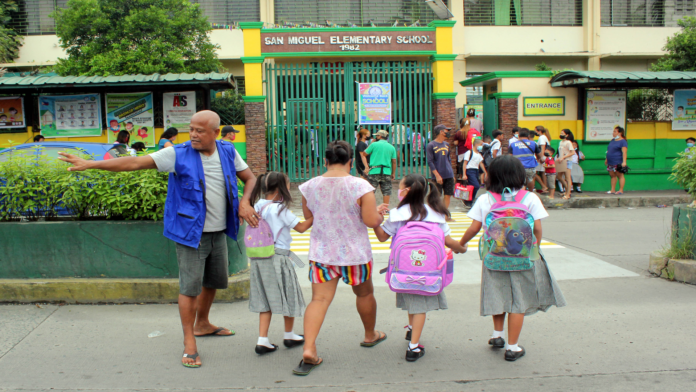The House of Representatives on Wednesday approved on the third and final reading a bill institutionalizing and enhancing the roles of Parent-Teacher and Community Associations (PTCA) in the holistic development of children.
With 202 votes, the chamber approved House Bill (HB) 9670, which seeks to amend Presidential Decree 603 or the Child and Youth Welfare Code.
“Promoting the welfare and protecting the rights of children is one of our utmost priorities in terms of legislation and we hope to achieve this through the passage of this bill,” Speaker Ferdinand Martin G. Romualdez said in a statement.
“We acknowledge the reality that it takes a village to raise a child so through this bill, we aim to harness collaboration among parents, teachers, school officials, and the communities, in ensuring that the welfare and rights of children are protected at all times.”
Under the measure, every early child development center and basic education school is required to organize a PTCA, which shall serve as a forum for the discussion of problems and their solutions relating to the total school program, and for ensuring the full cooperation of parents in the implementation of such programs.
The PTCA shall be composed of parents, parent-substitutes, teachers, community development workers, and a duly recognized community group from various sectors. It also encourages fathers and male caregivers to participate in PTCA activities.
It will assist the provincial, city, municipal, and other local authorities and school officials in promoting the advocacy of and implementation of programs and activities that protect the rights and promote the welfare of children.
The PTCA is also tasked to create a development program for children; ensure the full cooperation of parents, parent-substitutes, teachers, and community stakeholders; consult the children, through their student councils, parents, parent-substitutes, and child organizations in the planning and implementation of programs, projects, and activities.
The PTCA will also serve as an avenue for stakeholders to design appropriate programs, discuss issues, and recommend actions; and support the implementation of child protection policies in schools and communities.
Besides Romualdez, other authors of HB 9670 are Tingog Party-list Rep. Yedda K. Romualdez and Jude Acidre, BHW Party-list Rep. Angelica Natasha Co, Quezon City Rep. Franz Pumaren, TGP Party-list Rep. Jose Teves Jr., Cavite Rep. Lani Mercado Revilla, and Parañaque City Rep. Edwin Olivarez, among others.
Science High School
The House also voted 217-0 to approve on final reading HB 9726 or the proposed “Expanded Philippine Science High School System Act.”
The bill seeks to expand the scope and operations of the Philippine Science High School (PSHS) campuses from one campus to two per region, but limited to one PSHS per province.
It also aims to strengthen PSHS’ leadership role in secondary Science, Technology, Engineering and Mathematics (STEM) education.
“Through this bill, we aim to expand the number of PSHS campuses per region, making world-class education even more accessible to more deserving Filipino students across the country,” Romualdez said.
Under the bill, PSHS campuses offer secondary courses with special emphasis on STEM students with high aptitude or who are gifted in science and mathematics on a free scholarship basis.
The proposed law empowers the PSHS Board of Trustees in the development of policies, guidelines, and criteria necessary to maintain the quality and uniform educational standards in all PSHS campuses.
It also formulates the coverage, criteria, place of study, and other guidelines for applicants of the science and technology scholarship program.
Section 18 of HB 9726 expressly provides that income generated from school fees collected by the PSHS campuses will be reported and deposited to an authorized government depository bank as a trust fund of the PSHS System to be used for its priority programs and activities. (PNA)


